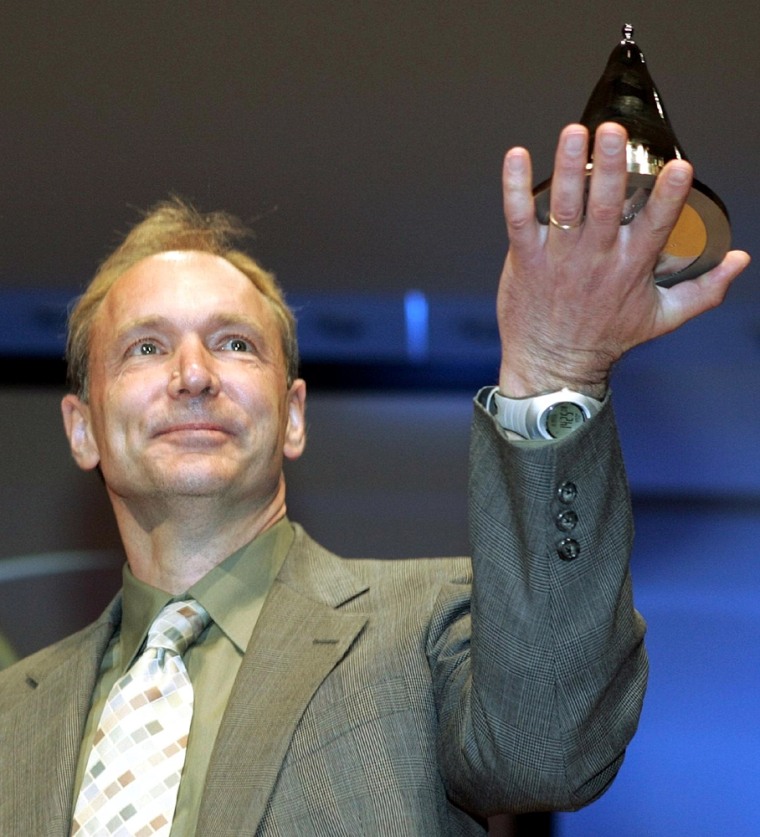Tim Berners-Lee, who received a $1.2 million cash prize Tuesday for creating the World Wide Web, says he would never have succeeded if he had charged money for his inventions.
"If I had tried to demand fees ... there would be no World Wide Web," Berners-Lee, 49, said at a ceremony for winning the first Millennium Technology Prize. "There would be lots of small webs."
The prize committee agreed, citing the importance of Berners-Lee's decision never to commercialize or patent his contributions to the Internet technologies he had developed, and recognizing his revolutionary contribution to humanity's ability to communicate.
Berners-Lee, who is originally from Britain and was knighted last December, has mostly avoided both the fame and the fortune won by many of his Internet colleagues. Despite his prize, he remained modest about his achievements.
"I was just taking lots of things that already existed and added a little little bit," said Berners-Lee, who now runs the standard-setting World Wide Web Consortium from an office at Massachusetts Institute of Technology.
"Building the Web, I didn't do it all myself," he said. "The really exciting thing about it is that it was done by lots and lots of people, connected with this tremendous spirit."
Berners-Lee indeed took concepts that were well known to engineers since the 1960s, but it was he who saw the value of marrying them.
Pekka Tarjanne, chairman of the prize committee, said "no one doubts who the father of the World Wide Web is, except Berners-Lee himself."
Finish President Tarja Halonen presented the biennial award, subsidized by the government. The cash prize is among the largest of its kind, and Berners-Lee is the first recipient.
The prize committee outlined the award to be given for "an outstanding innovation that directly promotes people's quality of life, is based on humane values and encourages sustainable economic development."
"Isn't this like a definition of the World Wide Web?" Tarjanne asked.
Berners-Lee first proposed the Web in 1989 while developing ways to control computers remotely at CERN, the European nuclear research lab near Geneva. He never got the project formally approved, but his boss suggested he quietly tinker with it anyway.
He fleshed out the core communication protocols needed for transmitting Web pages: the HTTP, or hypertext transfer protocol, and the so-called markup language used to create them, HTML. By Christmas Day 1990, he finished the first browser, called simply "WorldWideWeb."
Although his inventions have undergone rapid changes since then, the underlying technology is precisely the same.
His recent project -- which experts say is potentially as revolutionary as the World Wide Web itself -- is called the Semantic Web. The project is an attempt to standardize how information is stored on the Internet and to organize automatically the jungle of data found today on the Net into a "web" of concepts. By attaching meaning to data behind the scenes, computers can do a better job of searching for information.
"It is an exciting new development that we're making," he said.
In his acceptance speech, Berners-Lee focused on technology as an evolving process that was just in the beginning.
"All sorts of things, too long for me to list here, are still out there waiting to be done. ... There are so many new things to make, limited only by our imagination. And I think it's important for anybody who's going through school or college wondering what to do, to remember that now," he said.
